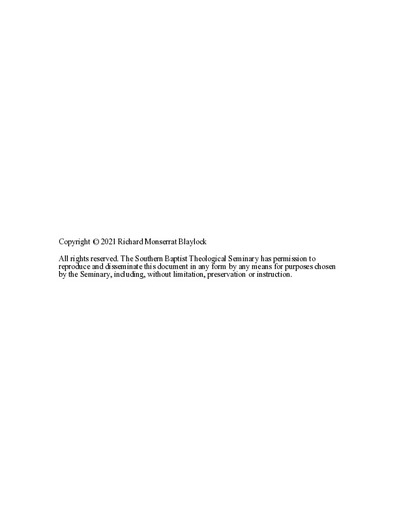Vessels of Wrath: A Biblical-Theological Study of Divine Reprobating Activity
Abstract
Divine Reprobating Activity (DRA) may be defined as any exercise of divine agency intended to efficaciously influence responsible creatures towards behavior that merits divine condemnation so that they do in fact experience God’s judgment. In this study, I argue that the Christian canon does not present DRA as an insignificant or monolithic concept; instead, the biblical authors showcase both the significance and complexity of DRA in a variety of ways.In chapter 1, I provide an overview of my research aims as well as a description of the approach I take in exploring the concept of DRA. Chapter 2 comprises a history of research in which I selectively summarize scholarship on subjects such as divine hardening, predestination, election, divine and human agency, and interpretations of Romans 9.
In chapters 3–6, I explore the theme of DRA within the OT. Beginning with the Torah and concluding with the Writings, I examine cases of DRA section by section throughout the OT. After analyzing over thirty examples, I conclude that the OT attests to DRA’s significance by grounding Israel’s salvation history in God’s exercise of reprobating agency and by depicting the revelation of YHWH’s character as a function of DRA. Moreover, I also demonstrate that the OT authors characterize DRA in a multiplicity of ways, including retributive and non-retributive forms, active and passive
forms, and immediate and mediated forms. In addition, though the vast majority of OT examples refer to non-eternal punishment, Psalm 92:8 may bear witness to eternal DRA. I turn to instances of DRA in the NT in chapters 7–9. In keeping with the OT,
these biblical books also treat DRA as crucial to understanding salvation history and the very character of God. Moreover, several NT examples highlight the concept’s importance by suggesting that DRA determines the eschatological destinies of persons consigned to divine judgment. In addition, the NT continues to bear witness to the complexity of DRA, as it provides multiple characterizations of the concept.
Finally, in chapter 10, I summarize the results of my study and make suggestions for further research.

